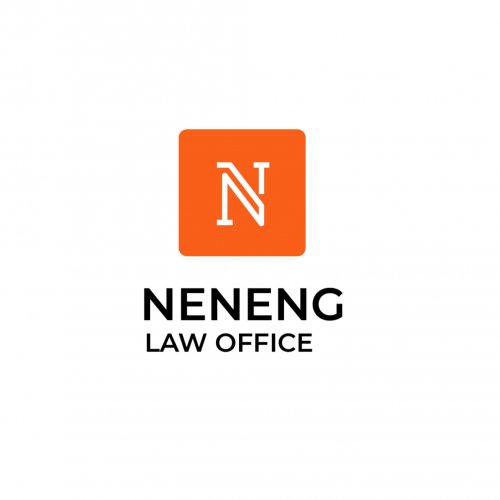Best Conveyancing Lawyers in Cameroon
Share your needs with us, get contacted by law firms.
Free. Takes 2 min.
Free Guide to Hiring a Real Estate Lawyer
Or refine your search by selecting a city:
List of the best lawyers in Cameroon
Legal guides written by CHI & Partners Law Firm:
- Ship Registration in Cameroon
About Conveyancing Law in Cameroon
Conveyancing in Cameroon refers to the legal process of transferring ownership of property from one person to another. It involves the preparation, execution, and registration of documents necessary for the valid transfer of property rights. The legal framework for conveyancing is shaped by both statutory laws and customary practices, as Cameroon’s legal system is a blend of civil law (in the Francophone regions), common law (in the Anglophone regions), and customary law. The process is crucial whether you are buying, selling, inheriting, or gifting land or buildings. Due diligence, clear documentation, and compliance with local laws are essential to avoid disputes and guarantee a secure property transaction.
Why You May Need a Lawyer
Conveyancing can be complex, especially due to varying laws, documentation requirements, and the risk of fraud. Here are some common situations where legal assistance is vital:
- Buying or selling property, whether residential or commercial
- Transferring land through inheritance or as a gift
- Ensuring all land documents are genuine and properly registered
- Resolving disputes over property boundaries, ownership, or title defects
- Managing transactions involving foreigners or in areas with dual legal systems
- Preparing or reviewing sale agreements, leases, and transfers
- Advising on land use restrictions, zoning laws, and property taxes
- Defending or asserting rights in cases of encroachment or expropriation
A lawyer ensures your interests are protected, paperwork is accurate, and the process complies with all legal requirements.
Local Laws Overview
Cameroon's legal pluralism means conveyancing laws differ between Anglophone and Francophone regions. However, some key aspects apply throughout the country:
- Land Ownership: Land is primarily state-owned. Private interests are recognized but must be registered.
- Title Registration: The primary proof of ownership is a land certificate, issued by the Land Registry after a formal process.
- Notarial Involvement: Notaries play a central role, especially in the Francophone regions, by drafting and authenticating the transfer documents.
- Due Diligence: Buyers must verify seller’s ownership, outstanding charges, and encumbrances on the property.
- Taxes and Fees: Transactions are subject to various taxes, such as registration fees and stamp duties, which must be paid for the transaction to be legally binding.
- Local Authorities: Some transfers require approval from local councils or traditional authorities, particularly for customary or unregistered land.
- Inheritance Issues: In cases of inheritance, heirs must follow statutory or customary succession procedures before conveyancing can occur.
Frequently Asked Questions
What is conveyancing?
Conveyancing is the legal process of transferring property ownership from one party to another. It involves checks, document preparation, signing, and registration of the transfer.
Do I need a lawyer or notary for conveyancing in Cameroon?
Yes, it is advisable to work with a lawyer or notary. They help with due diligence, document preparation, and ensuring all legal steps are correctly completed.
How do I verify the ownership of property in Cameroon?
Request to see the land certificate or title deed, and check with the Land Registry to confirm that the property is registered and free from encumbrances.
What documents are required for property transfer?
Main documents include a sales agreement, the seller’s land certificate or title deed, identification documents, and any required consents from authorities.
Can foreigners buy land in Cameroon?
Yes, foreigners can acquire property in Cameroon but may face additional procedures. Some lands, especially customary lands, may not be accessible to non-Cameroonians.
How are property disputes resolved?
Disputes can be settled through negotiation, mediation, or litigation in the relevant courts, depending on the nature and context of the issue.
What taxes and fees are payable?
Typical taxes and fees include registration fees, stamp duty, notary fees, and sometimes municipal charges. These must be paid for the transfer to be legally valid.
What happens if land is unregistered?
Unregistered land is common under customary law. Acquisition involves obtaining valid documentation from traditional authorities and may eventually be formalized through registration.
How long does the conveyancing process take?
The process can take several weeks to several months, depending on paperwork, authorities’ response time, and any complications or disputes.
Can I transfer inherited property?
Yes, but heirs must first comply with inheritance laws by obtaining appropriate documentation confirming their rights before proceeding with the transfer.
Additional Resources
Several resources and organizations can assist with conveyancing in Cameroon:
- Ministry of State Property, Surveys and Land Tenure: Responsible for land registration and title issuance.
- Local Land Registries: Where title searches and registrations are conducted.
- Bar Association of Cameroon: Provides contacts for qualified lawyers specializing in property law.
- Professional Notaries Chambers: For making appointments with certified notaries.
- Local councils and traditional authorities: Especially important for customary land transactions.
Next Steps
If you are considering buying, selling, or transferring property in Cameroon, start by gathering all relevant property documents and confirming the legal status of the land. Consult a qualified lawyer or notary with experience in conveyancing to guide you through the process and safeguard your interests. They will help ensure due process, provide essential legal advice, and represent you in any negotiations or disputes. For further guidance, reach out to relevant government agencies or professional associations listed above. Taking early legal advice can save time, money, and prevent future disputes.
Lawzana helps you find the best lawyers and law firms in Cameroon through a curated and pre-screened list of qualified legal professionals. Our platform offers rankings and detailed profiles of attorneys and law firms, allowing you to compare based on practice areas, including Conveyancing, experience, and client feedback.
Each profile includes a description of the firm's areas of practice, client reviews, team members and partners, year of establishment, spoken languages, office locations, contact information, social media presence, and any published articles or resources. Most firms on our platform speak English and are experienced in both local and international legal matters.
Get a quote from top-rated law firms in Cameroon — quickly, securely, and without unnecessary hassle.
Disclaimer:
The information provided on this page is for general informational purposes only and does not constitute legal advice. While we strive to ensure the accuracy and relevance of the content, legal information may change over time, and interpretations of the law can vary. You should always consult with a qualified legal professional for advice specific to your situation.
We disclaim all liability for actions taken or not taken based on the content of this page. If you believe any information is incorrect or outdated, please contact us, and we will review and update it where appropriate.
Browse conveyancing law firms by city in Cameroon
Refine your search by selecting a city.













